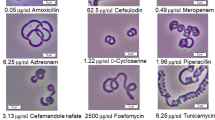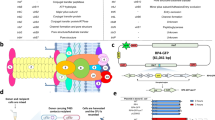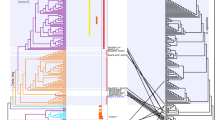Abstract
ANY report of conjugation in Spirostomum is of special interest because of its extreme rarity. To our knowledge the last report was by Bishop3 nearly thirty-six years ago in S. ambiguum. Earlier, Stein1 and Balbiani2 had observed the process in the same species. In no case was it noticed as a regular phenomenon (as in Paramecium and other ciliates) affecting considerable numbers of animals in a population. Nor were any of these authors able to present a full account of the conjugation process, since it was encountered by them very infrequently. As Bishop says, ‘There was no appearance of true epidemic’ of conjugation.
This is a preview of subscription content, access via your institution
Access options
Subscribe to this journal
Receive 51 print issues and online access
$199.00 per year
only $3.90 per issue
Buy this article
- Purchase on SpringerLink
- Instant access to full article PDF
Prices may be subject to local taxes which are calculated during checkout
Similar content being viewed by others
References
Stein, Fr., “Der organismus der Infusiontiere”, 2 (Leipzig, 1868).
Balbiani, F. G., Ann. Micrographie., 4, 369 (1892).
Bishop, A., Quart. J. Micro. Sci., 67, 391 (1923).
Seshachar, B. R., and Padmavathi, P. B., J. Protozool., 3, 145 (1956).
Author information
Authors and Affiliations
Rights and permissions
About this article
Cite this article
SESHACHAR, B., PADMAVATHI, P. Conjugation in Spirostomum . Nature 184, 1510–1511 (1959). https://doi.org/10.1038/1841510b0
Issue Date:
DOI: https://doi.org/10.1038/1841510b0
Comments
By submitting a comment you agree to abide by our Terms and Community Guidelines. If you find something abusive or that does not comply with our terms or guidelines please flag it as inappropriate.



